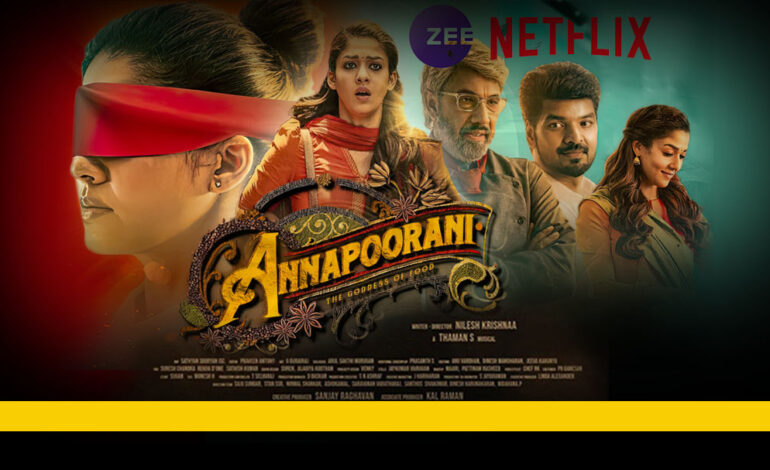
Annapoorani, a Tamil film starring lady superstar Nayanthara was recently taken down by Netflix from its platform in response to backlash and protests from right wing groups, marking the latest episode in a series of controversies where India’s entertainment industry has succumbed to the pressures of religious campaigns.
The film in question, ‘Annapoorani: the Goddess of Food,’ depicts the journey of a young woman aspiring to become the best chef in India. The narrative involves her cooking and consuming meat, a choice met with objections not only from her family but also from other sections of the traditionally vegetarian Brahmin caste which she was born in.

Launched on December 29, the movie swiftly ascended to become India’s most trending film on Netflix. However, within a mere two weeks, it vanished from the streaming site, including its international platforms. This removal was attributed to a request from the licensor, ZEE, as confirmed by a Netflix spokesperson. The biggest irony in all this is that the film had already been cleared by the censor board and even released in theatres across the country without any controversies or hindrances.
The removal of the film was itself met with severe backlash on social media from citizens concerned about the breach of the right to expression that is guaranteed by the constitution and even from celebrities working within the film industry who are fearful of the same happening to their own work tomorrow. Many voiced their objection online, directly tagging netflix and criticising the platform for retreating under pressure from such one sided campaigns. This is what might have triggered netflix to come clean saying it was forced to do so at the request of the producers of the film, Zee, and that it was not its decision.
Netflix, in its substantial investment into the Indian market as part of its expansion into Asia, has faced considerable challenges and in the process, taken some decisions, which have been categorised as “bold” by a number of observers of the OTT platforms. The introduction of a Hindi option in 2020 aimed at reaching more Indian users reflected the company’s commitment to this endeavour. However, navigating India’s complex media landscape has proven challenging, particularly amidst the deepening divides between religious groups.

In 2020, Netflix encountered boycott calls in India over a scene in the series “A Suitable Boy,” which depicted a Hindu woman being kissed by a Muslim man at a Hindu temple. This portrayal of inter-religious relationships, stemming from Vikram Seth’s seminal novel, stirred anger among viewers, including members of the ruling Bharatiya Janata Party (BJP). The fallout from this incident prompted a police complaint against Netflix executives.
A year later, Amazon found itself in a similar predicament with its new Prime Video series “Tandav.” The depiction of some Hindu deities led to complaints from Indian politicians to police and regulators. In response, both Amazon and the show’s creators issued apologies.
These successive controversies have heightened fears among filmmakers and creators in India over the spectre of censorship. India’s film industry has long grappled with censorship, driven by factors ranging from religious objections to accusations of content being “obscene” or “immoral.”
Streaming content initially provided a departure from traditional censorship norms as it remained unregulated by the government. However, in 2020, authorities introduced new rules designed to rein in streaming services and online content. These rules, characterised by their vaguely worded nature, have stirred concerns among filmmakers, with a broad array of topics already becoming targets for complaints and public outrage.
Similar concerns extend beyond the realm of streaming to encompass the broader media landscape. Instances of government intervention, such as the use of emergency powers to ban the release of a documentary about Modi, and tax authorities searching the BBC’s offices in Delhi and Mumbai in January of the subsequent year, have raised alarms regarding the potential erosion of press freedoms and increased censorship in India.
Once ‘Annapoorani’ began streaming on December 29 there were a series of events which led to its removal. Several far-right Hindu groups vehemently criticised the film, resulting in some of them filing a First Information Report (FIR) against the film’s director, producer, and actors. The charges included accusations of “outraging religious feelings” and “promoting enmity between different groups.”
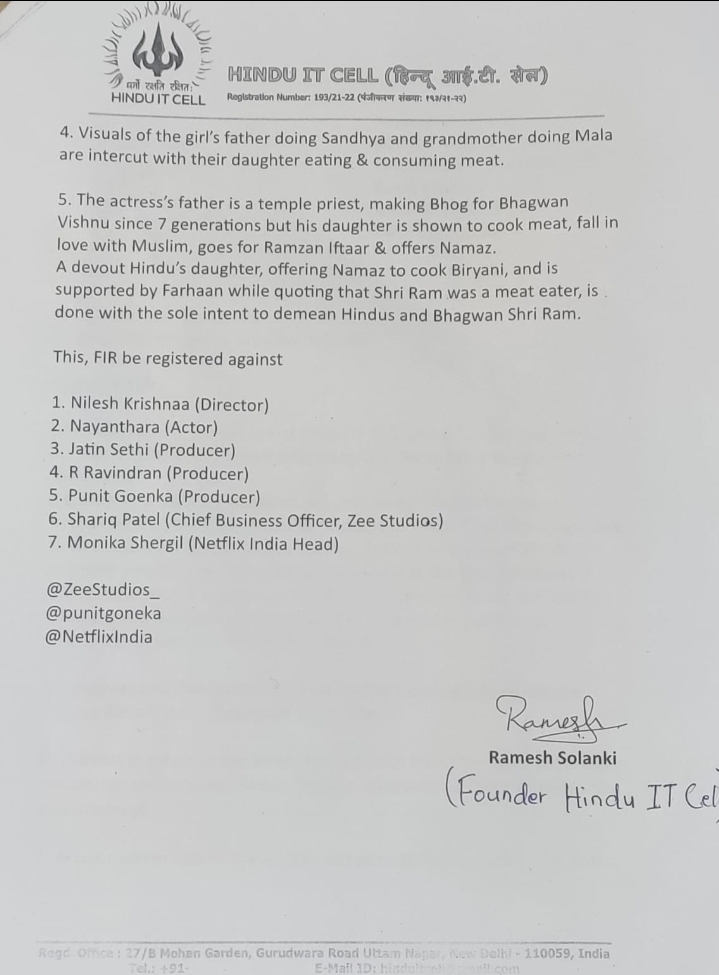
India, with its historical backdrop of communal and inter-religious violence, has established anti-hate speech laws to maintain civility among diverse communities. In recent times, Hindu nationalist groups have adeptly leveraged these laws, or the mere threat of an investigation, to mount protests and force the removal of content they find offensive.
On January 6, Ramesh N Solanki, the founder of the “Hindu IT Cell”, submitted a complaint asserting that the film was intentionally released to hurt Hindu sentiments. He specifically objected to scenes portraying the “daughter of a Brahmin man” eating meat and suggesting that the revered deity Lord Ram has also consumed meat.
Further intensifying the controversy, Vishwa Hindu Parishad (VHP), another prominent Hindutva group, lodged complaints with both Netflix and Zee Entertainment on January 9. Their assertions claimed that the film hurt the religious sentiments of Hindus and Brahmins. A spokesperson from VHP asserted that Zee Entertainment had issued an apology later that day, sharing an image of the letter on social media. In the letter, the studio stated its coordination with co-producers to take corrective action, including the removal of the film from Netflix until it undergoes editing.
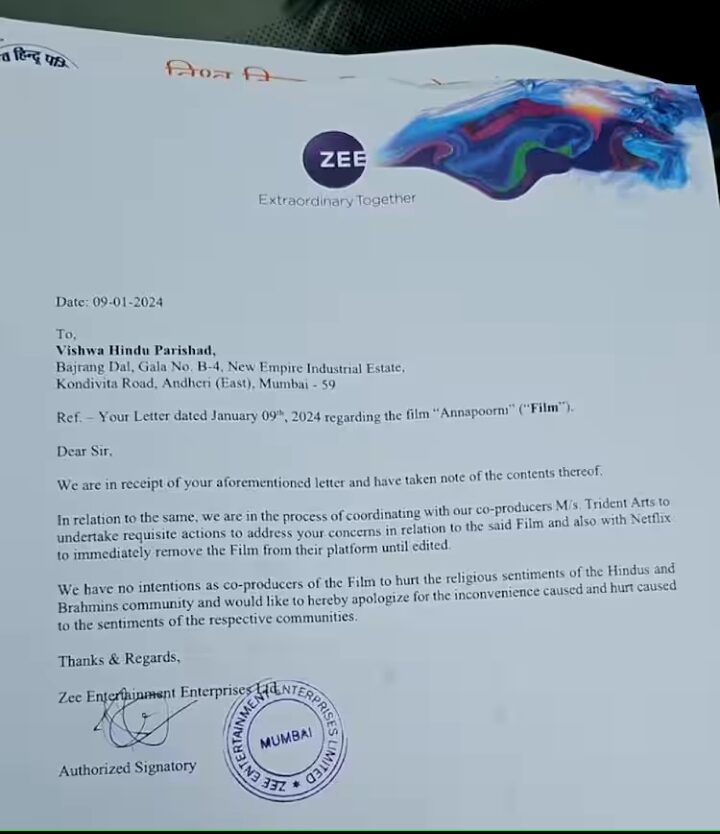
This series of events eventually led to the lady superstar herself issuing an apology on instagram on January 19th. The apology began by saying Jai shree ram! And went on to say Nayanthara is an ardent believer in god and visits temples across the country and would never intentionally hurt religious sentiments. That the film crew only intended to make a positive film about never giving up. This was met with disappointment from the fans of the film saying they hoped Nayanthara would stand up for her films without giving up so easily! That the film had already been cleared by the censor board and that the reactions from a few extremists should not limit the freedom of others to watch and appreciate different art forms in a supposedly democratic country.
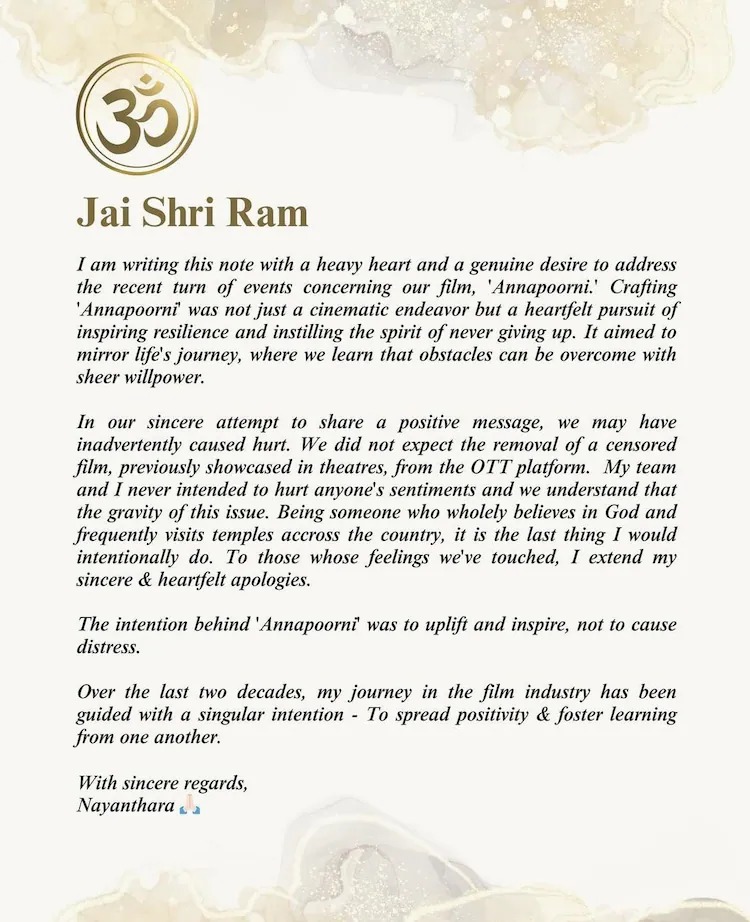
‘Annapoorani’ is without doubt a symbol of the times we live in, where a film carrying the message of positivity, religious harmony and progress is ruthlessly attacked in the name of hurting religious sentiments. Where even the most established fan favourite superstars are brought down to their knees using scare tactics and manufactured controversies. Clearly, these are times of ascendant, aggressive Hindutva with grim, foreboding prospects for Indian democracy.
To receive updates on detailed analysis and in-depth interviews from The AIDEM, join our WhatsApp group. Click Here. To subscribe to us on YouTube, Click Here.


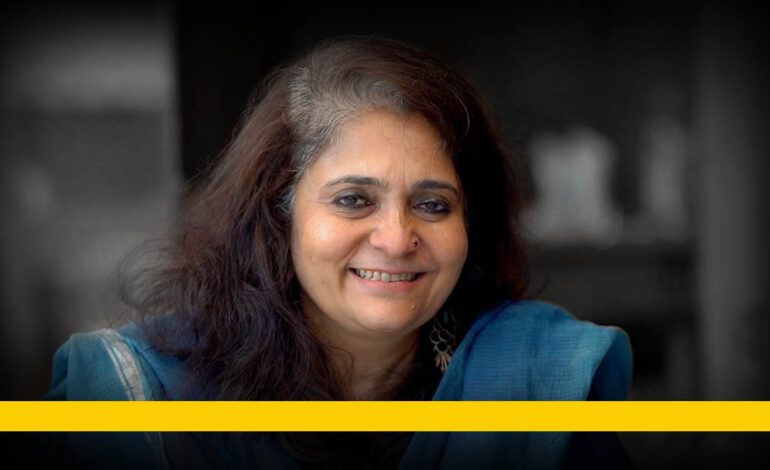
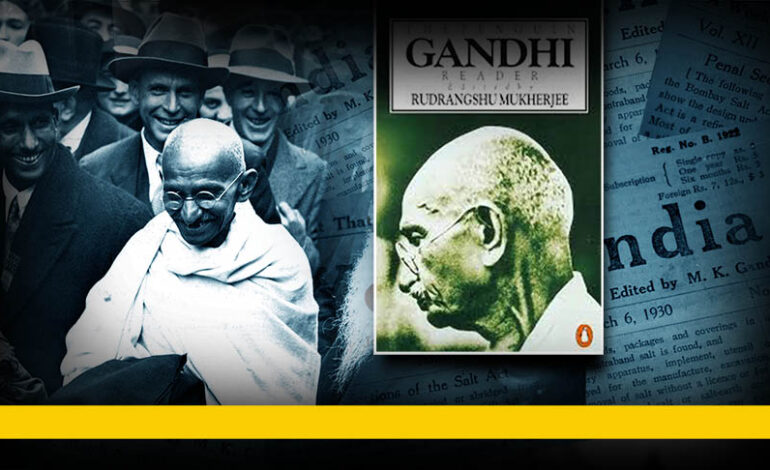

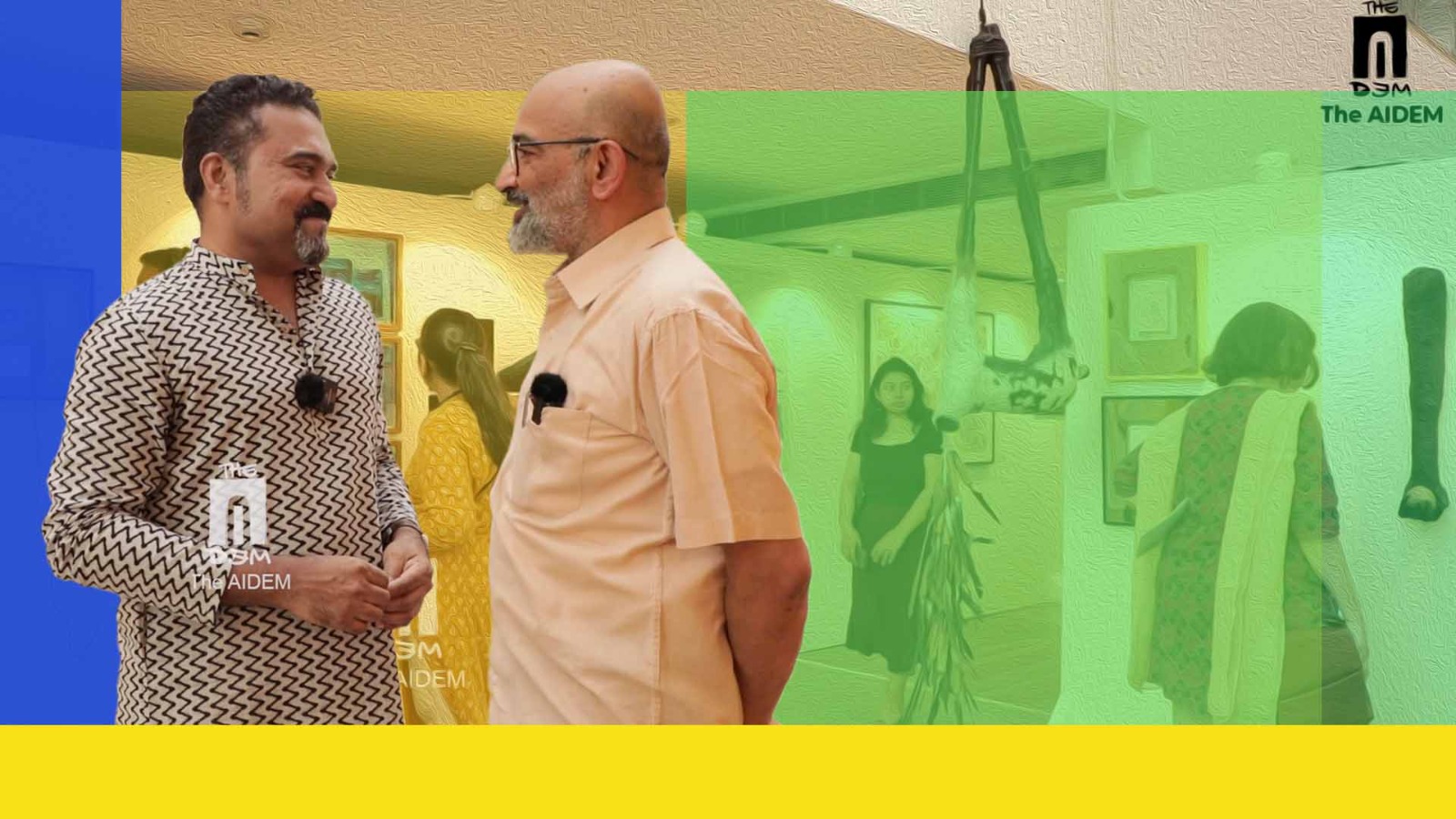
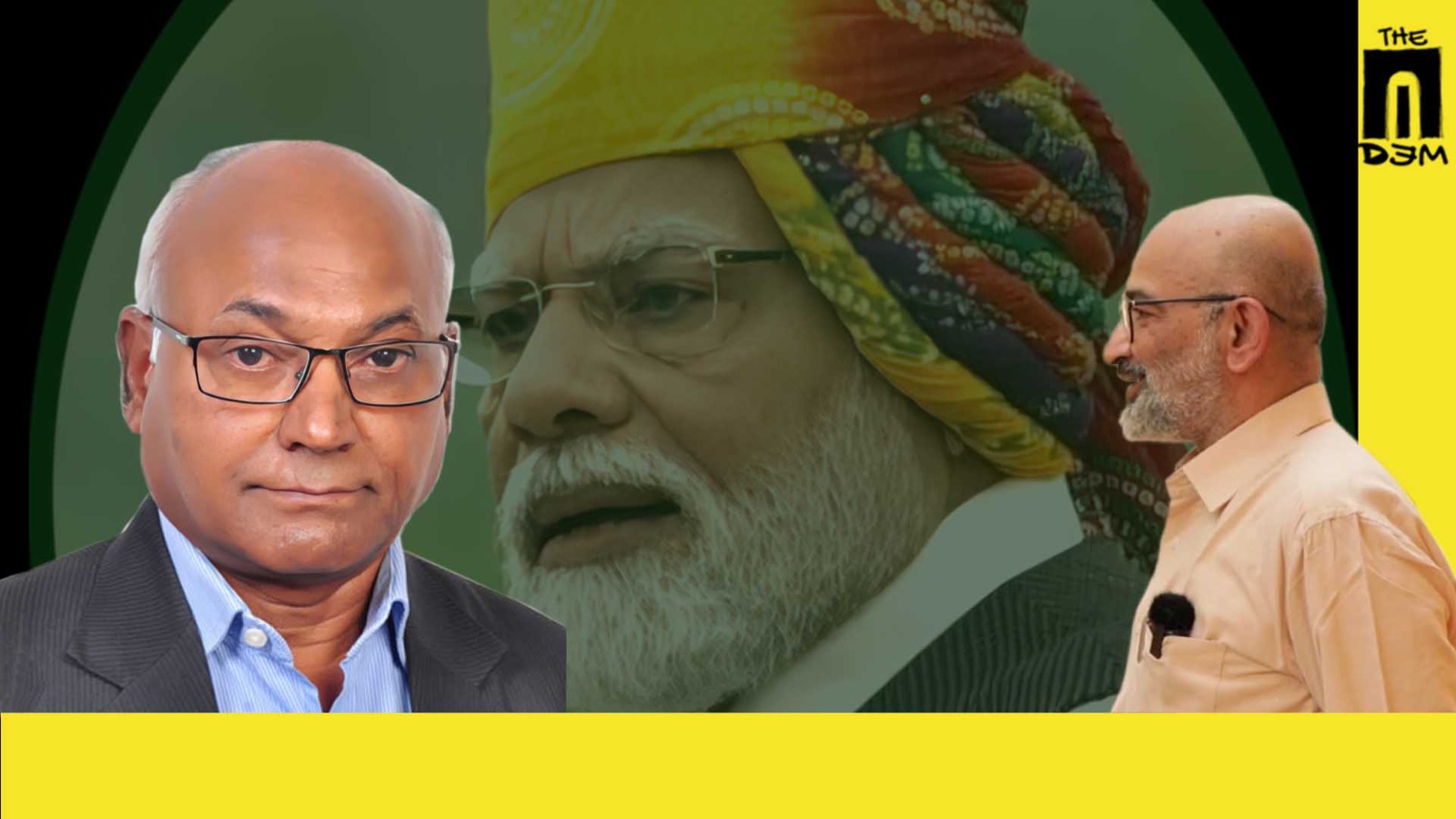



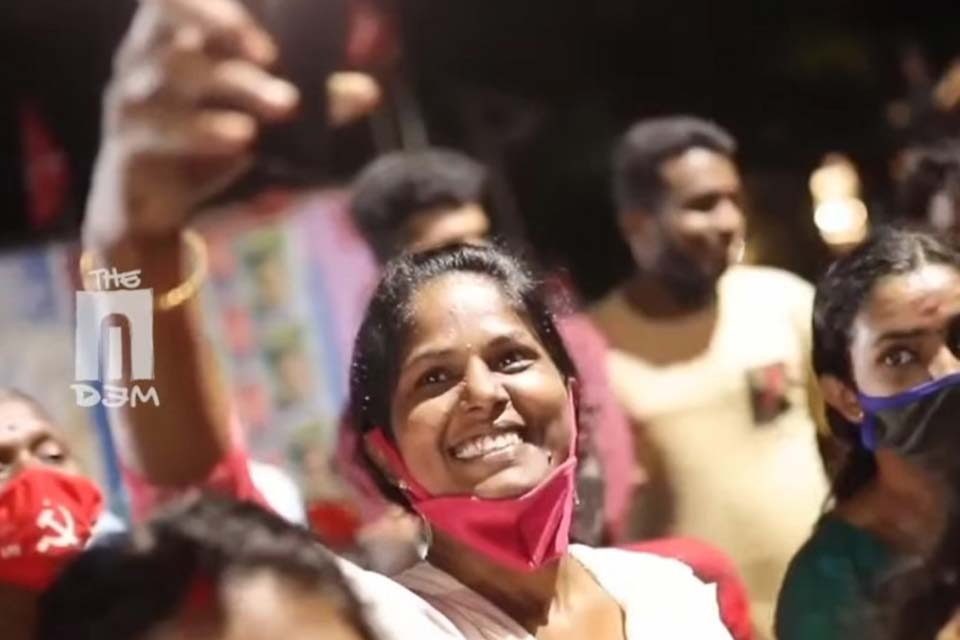

Nowadays, minorities are more matured in handling the situations, it seems.
In Kerala, Trance movie boldly dealt the functioning of Pastors and it is still available in OTT platform…
Recently, Kathal-the core dealt with LGBTQ issue got released in theatres and subsequently in OTT platform…There were no huge protests to stop streaming, etc…
But the coming days just keep getting worse and worse, if it’s not corrected now itself….